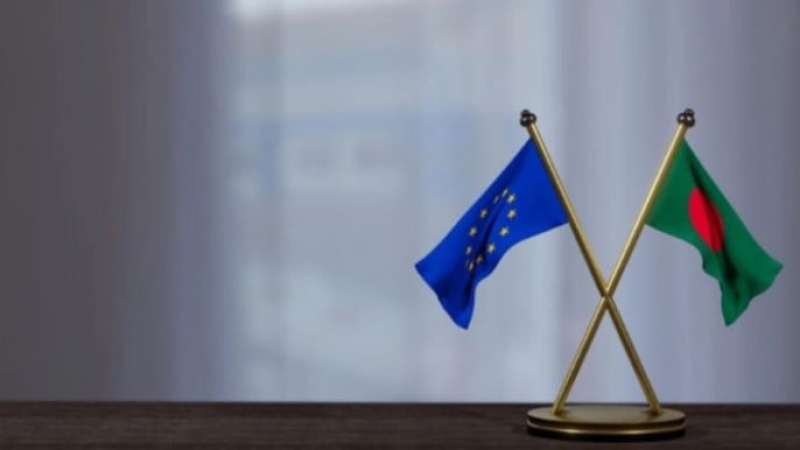- COP30 takes a hopeful step towards Justice, but does not go far enough: CAN |
- WFD 2025: Mass Fish Death in Indian Rivers |
- 3rd aftershock quake jolts Narsingdi, adjacent districts |
- G20 Backs Climate Declaration as US Boycotts Summit |
- Two Mild Quakes Jolt Dhaka; Epicentres Traced to Badda |
EU Vows Deeper Partnership, Backs Reforms and Free Polls

The European Union has renewed its commitment to a “strong and strategic partnership” with Bangladesh, emphasising that future cooperation will hinge on continued democratic reforms, credible elections and expanded economic collaboration.
Addressing the Bay of Bengal Conference 2025 on Saturday, EU Ambassador and Head of Delegation Michael Miller said the bloc views its ties with Bangladesh as a “strategic choice,” shaped by shared values and long-term interests. He noted that Bangladesh is entering a defining political moment as it prepares for what could be its first genuinely free and fair national election in decades.
“We are investing in your democracy as you buck the trend of democratic backsliding,” Miller said, announcing that the EU is preparing its largest-ever election observation mission for Bangladesh. He suggested that the mission reflects Europe’s confidence in Bangladesh’s political transition, as well as its expectation of meaningful reforms.
Miller underscored the EU’s position as the world’s largest development contributor—providing more than 30% of global humanitarian assistance and 43% of Official Development Assistance—despite accounting for less than 15% of global GDP. He described this as proof of the bloc’s long-standing commitment to global stability and inclusive growth.
The ambassador confirmed that negotiations on an upgraded Partnership and Cooperation Agreement (PCA) are in their final stages. The new pact is expected to broaden engagement beyond trade to include governance reforms, climate cooperation, labour rights, digital transformation, and security-related dialogue.
Highlighting the EU’s role in Bangladesh’s economic rise, Miller noted that preferential market access has been crucial to the country’s garment-sector expansion over the past quarter century — a factor that helped lift millions out of poverty and steered Bangladesh towards graduation from Least Developed Country status.
Looking ahead, he said the EU’s Global Gateway initiative could unlock substantial foreign investment for Bangladesh, provided that European companies are assured fair competition and regulatory transparency. “A level playing field is essential if investors are to bring long-term capital,” he stressed.
Miller urged the next elected government to continue reforms initiated by the interim administration, citing efforts in digital governance, judicial independence, labour rights and anti-corruption. Sustaining these changes, he said, will strengthen stability, boost investor confidence and deepen Bangladesh’s global standing.
“The only way to avoid a world where might makes right is through a rules-based international order,” he said, reaffirming the EU’s commitment to multilateralism and stability in the Indo-Pacific.

